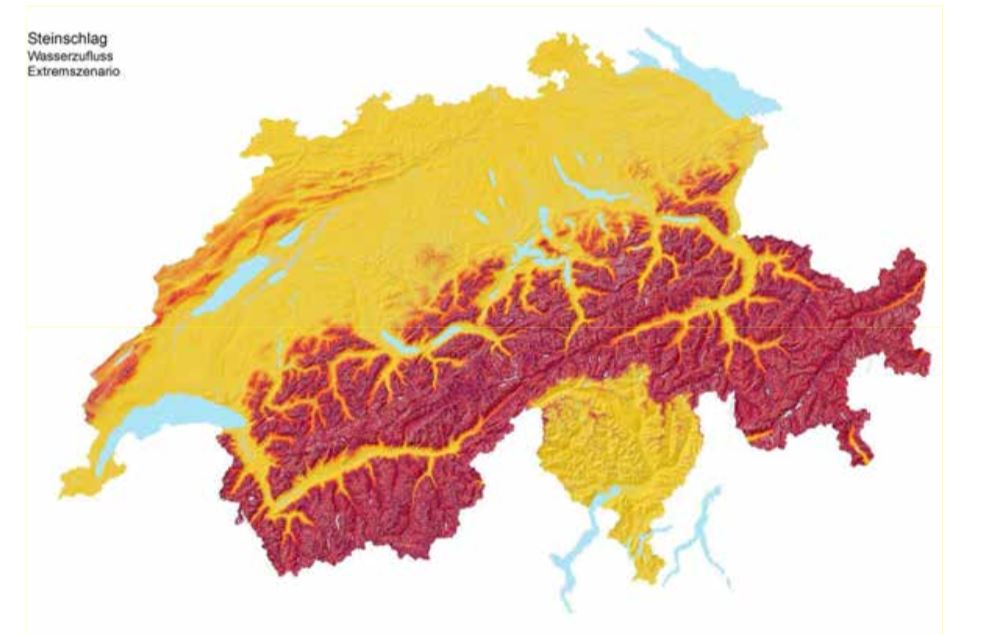Better assessment of natural hazards
Against the backdrop of climate change, the Federal Office for the Environment has used a new method to map the development of natural hazard processes. This makes it possible to better estimate the change in hazards in a region.

Within the framework of natural hazard prevention, the Federal Office for the Environment (Bafu) has had the effects of climate change on rockfall, avalanches, hillslope debris flows and hazards emanating from torrents studied. Therefore, the experts have developed their own climate sensitivity analysis method that takes into account different climate scenarios. These are the same as those used for climate policy.
Regionally different effects
The Study covers two time periods according to Bafu and is based on a medium and an extreme climate scenario: the former extends to the year 2060, the latter to 2085. The results showed how strongly the natural hazard in question increases or decreases according to the climate scenarios for the respective region. The maps show the individual influencing factors (map: red equals "strongly increasing").
The results also show that there is no general trend in Switzerland, as local influencing factors such as altitude and exposure played a major role depending on the compass direction. In certain regions, the risk from natural hazards would decrease due to climate change, while in others the risks would tend to increase. Possible damage was not examined in the study, according to the report.
The results of the climate sensitivity study would provide both the cantons and the federal government with an overall view of expected changes. They would also allow for better and more targeted monitoring of natural hazards. Finally, these scenarios can serve as a basis for the planning of future prevention measures, as the Bafu writes in conclusion.
Special show in Zurich
Natural hazards are also a topic at the Trade fair for safety (November 10-13, 2015): The Special show "Risk Management of Natural Hazards" is dedicated to the topic with numerous presentations. The platform is intended as an exchange between hazard experts and safety officers, as the organizers emphasize.









